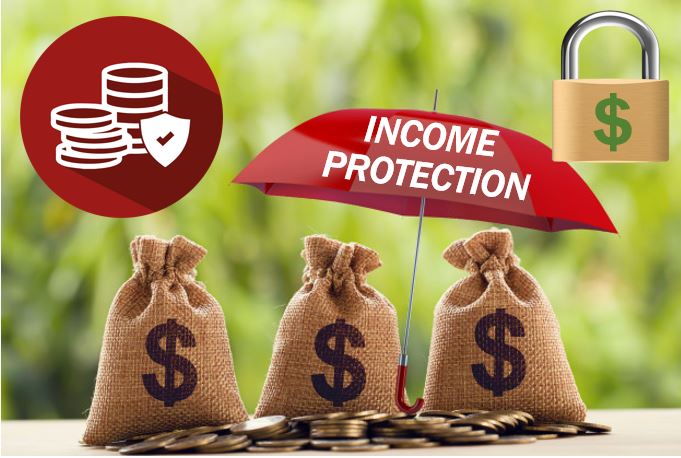What would happen if you suddenly fell ill and became bed-ridden for an extended period? Would you be able to cope financially with your income stream cut short?
This is a worry everybody faces, but what separates some people from others is how they counter it beforehand.

So how do you cover for the loss of earnings caused by illness? Simple! By taking out Income Protection Insurance. This policy provides regular tax-free financial support if you’re unable to work due to an illness or an unfortunate accident. Keep scrolling down to learn more!
How does income protection work?
Income protection also referred to as permanent health insurance, provides financial security based on a predetermined percentage of your income. If you get ill or injured, your insurer pays out a specific amount of income after a given waiting period.
The waiting period usually ranges between one and twelve months; the longer the wait, the cheaper the policy is. After this duration elapses, your insurer starts sending you financial help until you’re fully ready to return to work, retire, pass away, or the policy expires.
What does income protection cover?
Most income protection insurance policies cover quite a wide range of illnesses compared to regular health insurance and critical illness policies. However, some providers cut out pre-existing medical conditions, so you might want to assess your family’s medical history before taking out the cover.
In a nutshell, income protection insurance provides financial security if:
- You’re unable to work due to an illness or accident
- There’s a significant decline in your ability to work due to illness or accident
- You’re permanently incapacitated
On the flip side, there are exclusions that apply to income protection insurance. You can’t make a claim if you’re disabled due to the following:
- Attempted suicide
- Mental illness
- Normal discomforts caused by pregnancy, giving birth, miscarriage, or pregnancy termination
- Intentional self-inflicted act
- Use of an intoxicating drug
- Being part of civil unrest or riot
- Participating in criminal acts
How is income protection beneficial?
For starters, income protection policies are available in two main types; short-term and long-term covers. Whereas long-term policy pays out until you fully recover or retire, their short-term counterparts only provide financial assistance for a stipulated period.
Here are some reasons for taking out this policy:
- The payouts are 100% tax-free
- As long as the policy is valid, you can claim as much as is needed to sustain you
- The insurance covers all forms of injury or incapacity
- You can use the payouts to pay for your mortgage, daily living costs and bills, cost of recovery, credit card, and other debts
- You may use the payout to support an ailing child
How can you claim income protection?
As we mentioned earlier, you can make as many claims as are deemed necessary, provided your policy is still binding. But first things first, the insurer must be presented with your medical information from an independent source, and upon full assessment, decide whether you’re eligible for income protection or not.
So, what factors will your insurer consider to be sure you cannot work?
For starters, if illness or injury inhibits you from performing income-generating duties, then you automatically become eligible for income protection. Also, if you’re unable to work in your occupation for a set time interval, you can make a provable claim.
To claim the benefits, most insurance providers require you to fill out a form with the evidence of a medical report, the policy number, and proof of income. After review and acceptance, the insurer will pay you a percentage of your income for the period you’ll be out of work and check on your recovery progress.
Factors that affect the cost of income protection
Like most insurance policies, the premium payments depend on several factors, including:
Age
The older you are when taking out the policy, the higher your premiums will be since you’re more likely to get ill then.
Waiting period
Generally speaking, the longer you’re able to extend the waiting period, the less costly the premiums will be.
Occupation
Please note that every occupation has its fair share of risks, whether it’s white-collar or blue-collar. Insurers normally assess occupations individually to assess the likelihood and severity of risks when setting the cost.
So, should you get an income protection policy?
Let’s face it; not many families can survive or continue living comfortably without the income of their main breadwinner. And the fact that illnesses or injuries come unannounced should be enough inspiration to seek financial protection. So take the next step and prepare for any worst-case eventuality by taking an Income Protection Insurance today!
Interesting related article: “What is Insurance?“

